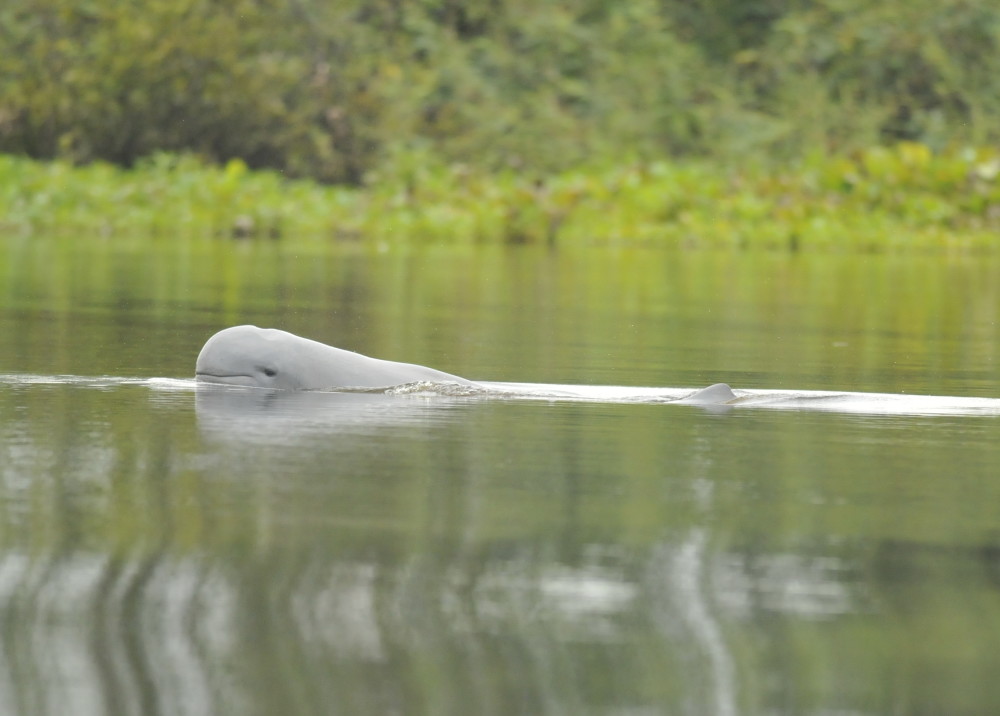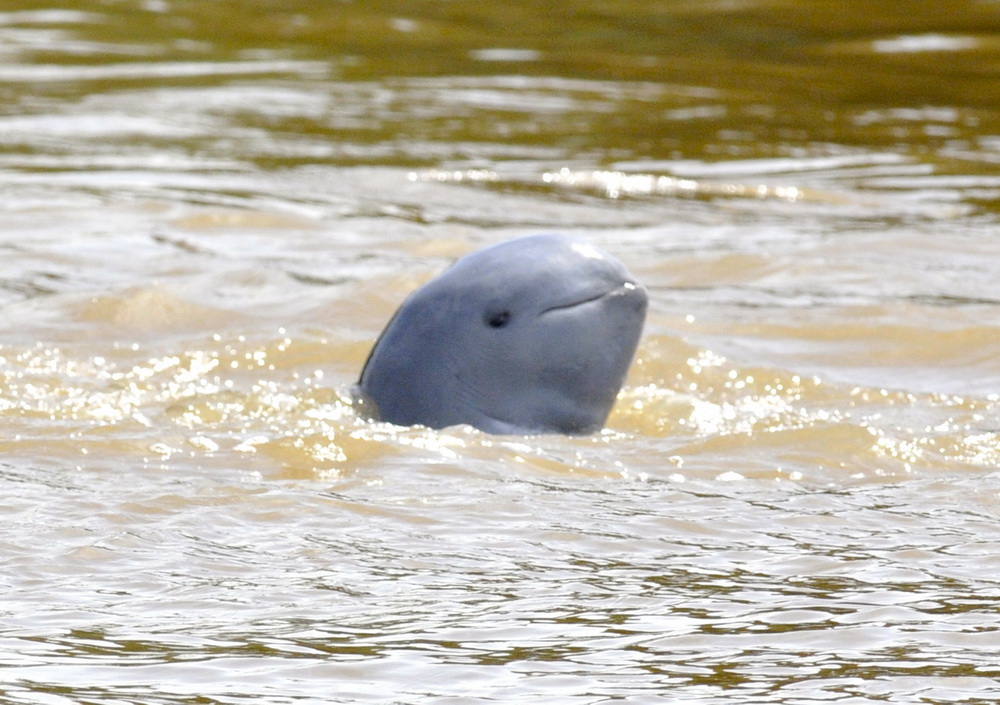Mahakam river dolphins (pesut) in Indonesia

Status
Critically endangered
Population
Fewer than 50 adults
Scientific name
Orcaella brevirostris
The Mahakam River dolphin, locally named Pesut Mahakam, is the symbol of East Kalimantan Province and fully protected under Indonesia Law. Nevertheless, the population is critically endangered with less than 90 individuals remaining in the entire river.
The problem
The pesut is genetically unique which distinguishes it from other Irrawaddy dolphins both within and outside Indonesia. The dolphins are mostly found along a 200km section of the Mahakam River, the lakes, tributaries and wetlands along it, migrating 500km from the source in different seasons. Since 2009 the habitat has declined substantially. Fish numbers have plummeted as a result of the conversion of fish spawning swamp areas into oilpalm plantations in the core dolphin habitat. Underwater noise pollution from coal barges crossing a major dolphin tributary is also a serious issue. As a result, the largest population of pesut occurs in an even shorter section of the Mahakam (100km) and spends most of its time in the remaining five confluences (the junction of two rivers) and connecting tributaries as these are the safest places for feeding and play.
A now another problem has arisen in this remaining stronghold. A planned increase in coal barge transport is this critical area has been proposed for 2017. This will not only disrupt the daily migration patterns of the dolphins, due to the underwater noise pollution, but there is also the ever present danger of collision.
The solution
In order to mitigate the conflicts with coal barges and the problems associated with swamp conversion for the oil palm industry, the local organization Yayasan Konservasi RASI (Rare Aquatic Species of Indonesia) is working to secure the last remaining core areas. RASI has proposed establishing a protected area and they already have 100% community agreement, as this protection will not only help the dolphins but it will also benefit local fish resources as well.
With PTES funds, Danielle Kreb and her team will assess the threat of coal barge transport through narrow dolphin habitat by comparing dolphin presence in coal barge-free tributaries versus those confluences  where coal barges pass through. Since confluence areas have been identified as key areas for dolphins in terms of feeding and socializing, long-term scientific data is needed. The monitoring will be carried out by placing passive acoustic recording devices in each of the six confluences. Analysis will reveal the amount of time spent in each location as well as behavioral patterns and the influence of seasons and or disturbance (such as boats). The team will also carry out visual surveys to gather the best possible data.
where coal barges pass through. Since confluence areas have been identified as key areas for dolphins in terms of feeding and socializing, long-term scientific data is needed. The monitoring will be carried out by placing passive acoustic recording devices in each of the six confluences. Analysis will reveal the amount of time spent in each location as well as behavioral patterns and the influence of seasons and or disturbance (such as boats). The team will also carry out visual surveys to gather the best possible data.
This data will be used to convince the government to either halt this type of transport – which takes place in two out of six tributaries and confluences that are dolphin core areas – and at the very least to not expand transport to new areas nor increase the frequency of these boats passages. Currently the plans for 2017 are to increase frequency five-times fold!
